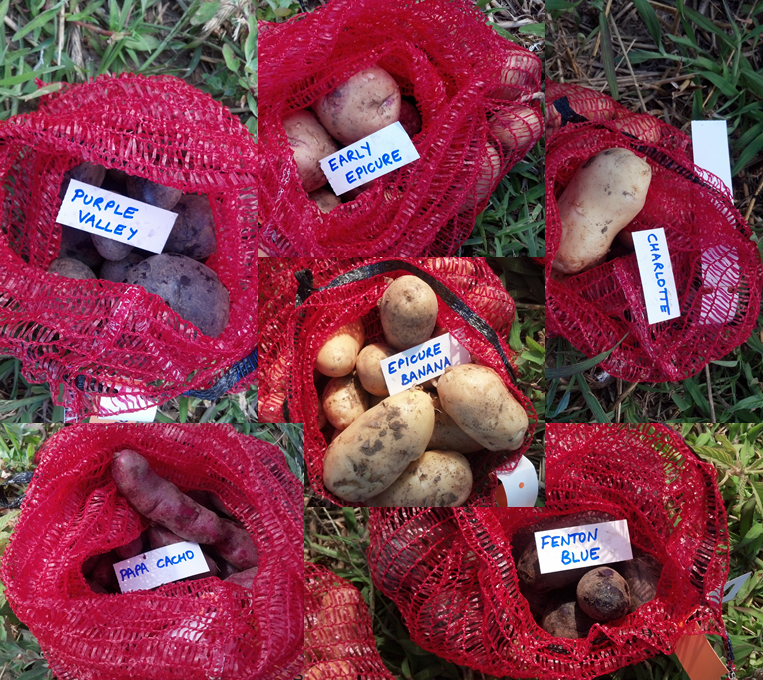Chefs and spuds!
Just a quick update this week (and apologies for its lateness!) Last week I was excited to contribute potatoes to a tasting event for a group of Madison chefs. Julie Dawson, a new professor in the UW-Madison Horticulture department, has started a group linking local farmers, UW-Madison plant breeders, and local chefs. This linkage provides opportunities for the needs and preferences of chefs and farmers to shape breeding goals. An early objective for the chefs is to agree on how they will assess flavor and culinary properties of the various kinds of vegetables. Last Wednesday, Julie and her team harvested lettuce, kale and other greens, and I harvested early potatoes for 6 varieties: heirloom yellows “Epicure Banana” and “Charlotte”, Peruvian fingerling “Papa Cacho”, heirloom blue “Fenton Blue”, recently released Korean variety “Purple Valley” and heirloom white “Early Epicure”. I wasn’t able to attend the tasting, but heard back that the chef favorites were Epicure Banana and Papa Cacho – also favorites of mine, so I was very happy. The potatoes were boiled and served plain.
Since I was digging 62 days post-planting, I was interested to see what the plants had produced. Early Epicure is true to its name – it had good numbers of golf-ball to tennis-ball sized potatoes. Epicure Banana was also quite prolific. Fenton Blue was next – most tubers were still quite small but fairly numerous. Papa Cacho is a late variety but already had quite a few 2-3 inch tubers. However Charlotte and Purple Valley yielded very little at this early stage.

One problem with large scale variety trials (remember, we have 60 in this year’s trial!) is that planting time, spacing, and harvest are generally the same for all varieties, for simplicity’s sake. However, some varieties thrive under different conditions. For example, Early Epicure and Papa Cacho tend to size up too much when widely spaced and harvested late. Over the next few years, as we focus in on the best heirloom and specialty varieties, I plan to experiment more with spacing and harvest date to find the optimum practices for different varieties. Earliness is important in organic potato production for a host of reasons, so I will be looking for early varieties.
This article was posted in Uncategorized and tagged organic potato, potato variety trials.
